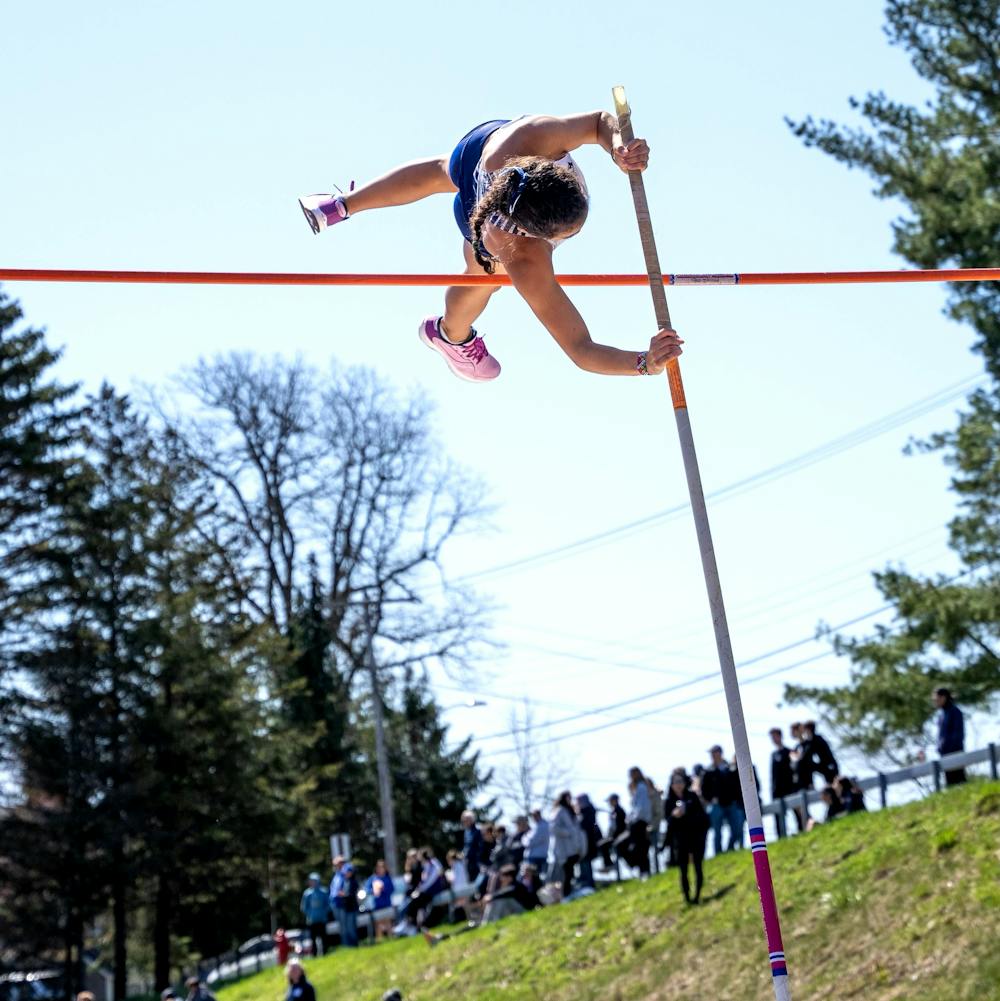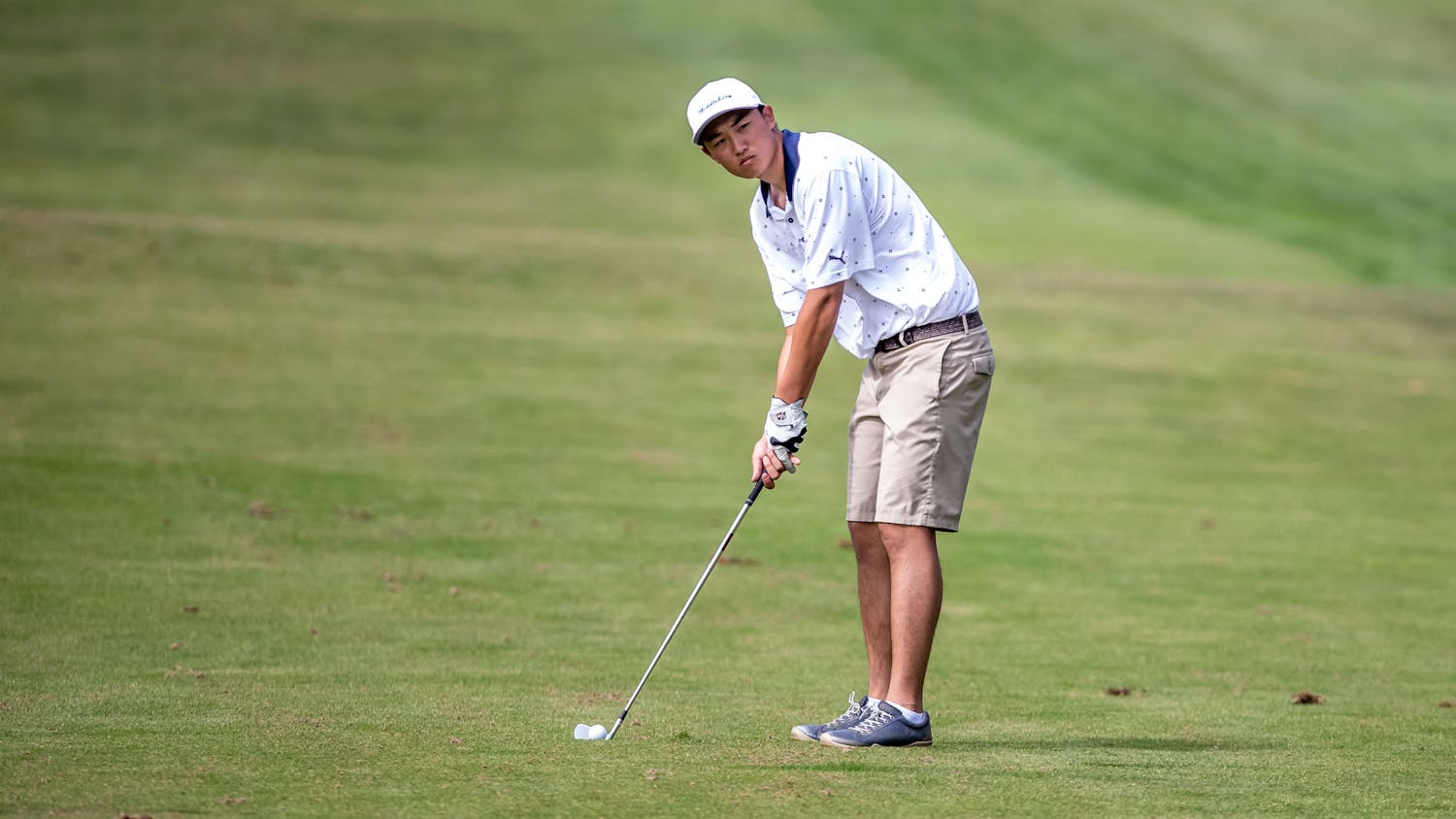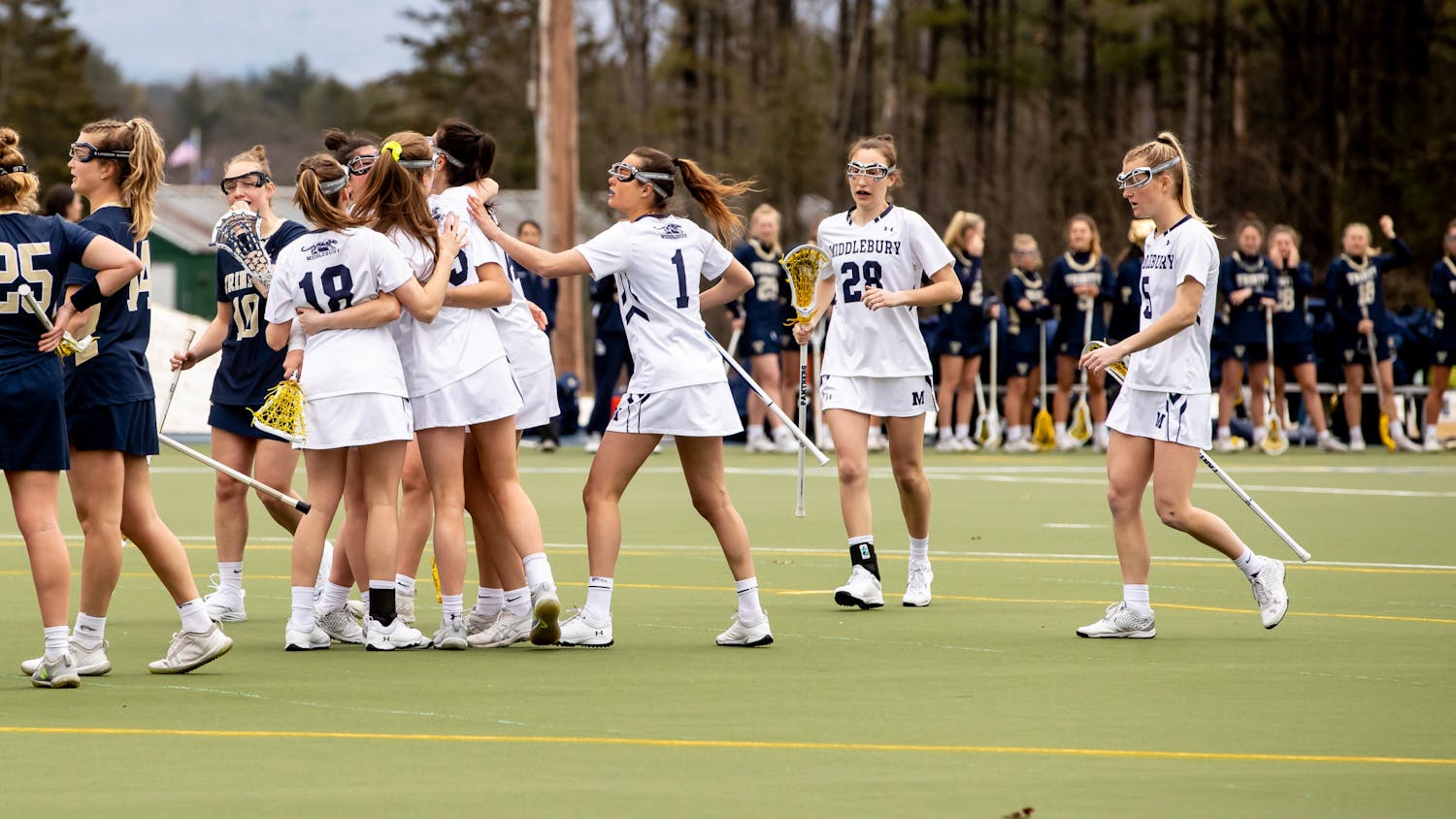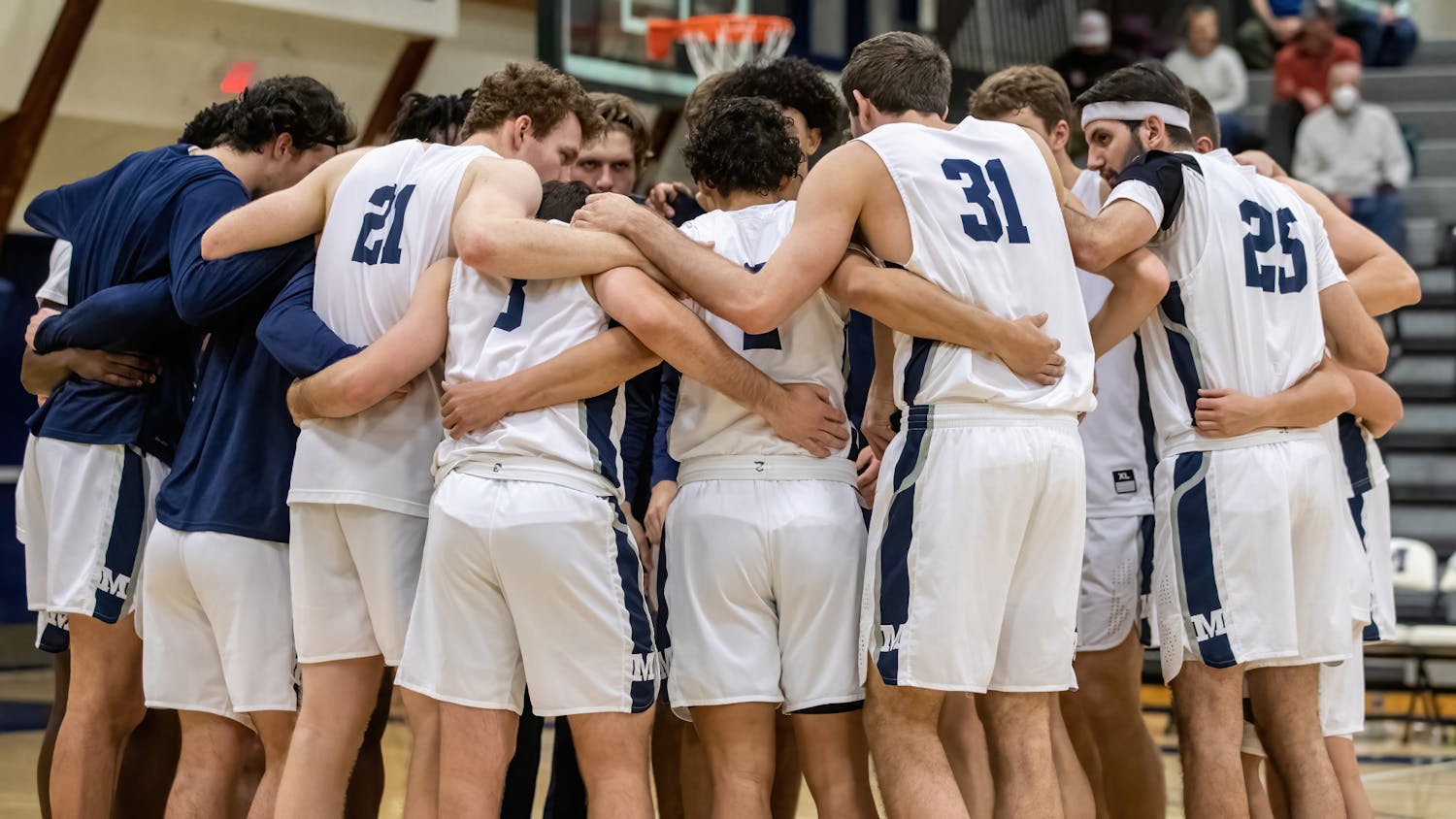Jessica Warren ’25, from Walnut Creek, Calif. is competing in her second year on the women’s track and field team as a pole vaulter. In this installment of Seven Questions, Warren discusses her journey to collegiate athletics, how to have a good sleep schedule and her hopes for the future of the team.
Owen Park: How did you first become involved in pole vaulting?
Jessica Warren: When I was younger, I used to watch my brother’s high school football games, and there would always be pole vaulters competing behind the bleachers. It is kind of embarrassing, but I always ended up watching the pole vaulters instead of the game. Pole vaulting was not always my main sport. I did gymnastics for 10 years and played club volleyball up until my first year of high school. By that point, I was really sick of volleyball, and I told my mom that I was interested in pole vaulting. She put me in touch with one of her friends who happened to be a pole vault coach at a nearby high school, and I began competing during my freshman year.
OP: Did you always know that you wanted to pole vault in college?
JW: Mostly. Pole vaulters in high school are made very aware of the heights they have to clear in order to get noticed by colleges. As such, I knew I could compete at the collegiate level since my sophomore year, I vaulted 10 ft — approximately the height that colleges will seriously consider recruiting you. Even though I had started relatively recently, I really liked the sport, and it was the first time that I had a coach that supported me.
OP: What made you decide to compete at Middlebury?
JW: I first heard about Middlebury through Joel Kofman ’24 who is a pole vaulter on the men’s track and field team. Both of us pole vaulted in the same high school district, and he suggested that I compete at Middlebury. I knew that I wanted to go to school far away from the West Coast but never really considered moving to New England. It was not until I started actively looking into Middlebury that I realized coming here would allow me to pursue my academic passions while competing at a high level. Talking to now-former Middlebury pole vaulters about their experiences also drew me here. One aspect of pole vaulting in high school that I really disliked was the dynamic between us pole vaulters and the rest of the track team. Other athletes did not really know we existed, which was frustrating at times. During the recruiting process, I was fortunate enough to be able to talk to a senior pole vaulter who told me about the amazing community dynamics that track athletes have with one another at Middlebury.
OP: Now that you are here, how easy has it been to balance academics and athletics?
JW: Really easy. I tend to spend my time doing either athletics or school, but that is because I like to prioritize my sleep. I like to get at least eight hours, sometimes nine, per night, and I will stop work at 9 p.m. to watch some TV. People are always confused about how I am able to get so much sleep while being on a team when in reality it helps me organize my time. Being a pole vaulter also helps with time management because we only practice three days a week. Both of these factors allow me to plan my days out, so I know when I need to focus on my work, when I have to finish things by and when I have time to myself. On the days I do not have practice, I will finish any outstanding assignments or do something relaxing like stretching or going for a swim. Pole vaulting is mentally exhausting, so it is important to make the most out of your time off.
OP: What would you say has been your biggest challenge competing at Middlebury?
JW: Injuries. Pole vaulting is really hard on the body. My friends always remind me how I used to be afraid of walking up and down the BiHall stairs because I was scared my knees would give out. There is never enough time between our fall and spring seasons to fully recover, so any injuries I have carry over. I also have tendonitis in both of my knees which I have had to get cupped and needled for. Needling is not very pleasant. It is essentially sticking metal needles into tense parts of your muscles to help them relax. I am used to it by now, but I have been called a cat in the trainer's room because it sounds like I am yowling every time I get needled.
OP: What would you say has been your biggest athletic success at Middlebury?
JW: Improving my jumping form. I have not broken my personal record since coming here, but my mechanics have gotten significantly better. Coming in freshman year, there was a lot that I had to fix in order to remain competitive. Looking back, I can confidently say that I have come a long way since then. Other than that, learning more about my injuries and how to bounce back from them has been a massive achievement. Understanding how I can improve in all facets of my game is something that I really value.
OP: What are some of your hopes and dreams for the future?
JW: I would like to get my personal record again, but that is not the most important thing for me at the moment. Right now, I am focused on finding ways to get myself in a better mental state during meets so I can be at my best. I will not be competing as much next year since I am studying abroad in the spring, but when I come back, I would like to be more involved in helping to shape the program. I feel at home now that there are more girls on the team, and I have gotten to know my teammates better. Having a supportive team culture and helping to keep everyone moving forward would make for an amazing senior year.




